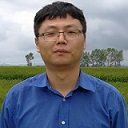
Charles CC Lee
Deputy Program Convenor
University of Newcastle
Australia
Biography
Charles CC Lee is a Deputy Program Convenor and Senior Lecturer at the University of Newcastle (Australia) Singapore campus. He has more than 25 years’ experience in environmental research, teaching and consulting in North America, and Asia-Pacific countries. He has soil science degrees from the University of Guelph (BSc) and University of Hawaii (MSc and PhD). At the Agency for Science Technology and Research, he was the lead co-author of a patent for the photocatalytic degradation of halogenated compounds. As an environmental consultant in California, he has worked with State, Federal (military sites) and multinational private sector clients (Shell, Chevron, ExxonMobil) to assist them to solve complicated site assessment and remediation issues using the ASTM RBCA approach. Dr Lee has conducted workshops and seminars related specifically to: (a) environmental remediation; (b) environmental impact assessment; and (d) non-point source pollution. Recently, he was invited as a technical expert to conduct a technical workshop on “Risk-based Corrective Action and Bioremediation of Contaminated Sites†for the Chinese Federal Environmental Agency – Chinese Research Academy of Environmental Sciences (CRAES), Beijing, China
Research Interest
Pollution control, occupational health and safety, environmental sciences
Biography
Dr. Chihpin Huang is a Professor of Environmental Engineering at the University of Jiaotong, Taiwan. He is also a Vice President and chief executive of Jiaotong University. He completed BS (Eng) in Environmental Engineering at National Cheng Kung University in 1981, M.Sc. in Environmental engineering at National Cheng Kung University in 1983 and Ph.D. in Environmental Engineering at the University of Delaware, USA, 1990. He is very well expertise in Tap water treatment technology, Industrial wastewater treatment and recovery technology and Sludge treatment and reuse. Chihpin Huang born in June 27, 1959. He serves as the Chair of Editorial Committee of Taiwan Water Association; and a member of the National Committee of Republic of China in International Water Association (IWA). Huang's publication has been extensive. In his twenty-two years of research career, he is the co-author of over 130 refereed papers in archival journal.
Research Interest
Tap water treatment technology, Sludge treatment and reuse, Industrial wastewater treatment and recovery technology
Biography
Beni Lew made aliyah to Israel in 1997 and since that time he has been working on environmental treatment systems and their implementation in the agricultural sector. During his Master's and Ph.D. work at the Technion, Beni studied biological systems for domestic wastewater treatment in rural areas in the Middle East region. The systems are characterized by their low energy consumption and emphasis on the re-use of the treated effluent for irrigation. The main topic of Beni's Master's thesis dealt with engineering aspects of anaerobic systems, such as the effects of temperature and retention time. For that, he built and operated two different anaerobic laboratory scale systems- an UASB reactor and hybrid UASB integrated with an anaerobic filter. During the same time, he participated in the operation and data collection of a 5 cubic meter UASB pilot built in Sachnin as part of the International Appropriate Technology Consortium (ATC) project. The results of his Master's thesis were presented in several Israeli and international conferences (England, Turkey and South Africa) and published in established international journals in 2003 and 2004. Due to his expertise in anaerobic systems for domestic wastewater treatment, Beni was invited to be a co-chairman in a session at one of the international conferences. During his Master's degree, Beni also worked as Teaching Assistant for the major environmental courses at the Faculty of Agricultural Engineering at the Technion: water and wastewater treatment, solid waste and sludge treatment and environmental management. His excellence in teaching was recognized by receiving three times the Best Teaching Assistant prize at the Technion. Results from his Master's thesis were used as the basis for his Ph.D. thesis work, "Kinetics of Domestic Wastewater Anaerobic Degradation at Different Temperatures". In this thesis, the major objective was to understand in a more comprehensive way the effect of temperature on anaerobic degradation of domestic wastewater treatment. For that, Beni built and operated several laboratory scale anaerobic reactors, which included: batch, fluidized bed and membrane bio-reactors. Moreover, bio-molecular tools (FISH) for bacteria population determination were applied. The scientific aspect of anaerobic systems was largely studied using high technological tools; moreover, engineering aspects were also taken into consideration. Using his expertise in water and domestic wastewater treatment, reactor and bio-molecular tools, Beni also cooperated on other projects at the same time including: wetlands systems for wastewater treatment using FISH tools and atrazine remediation of polluted groundwater using a biological granulated activated carbon fluidized bed reactor. During his PhD, Beni continued working as a Teaching Assistant for the major environmental courses in the Faculty of Agricultural Engineering at the Technion. He also started to lecture in English, Portuguese and Spanish at the International Management Program- Environmental Management at the Galillee College, lecturing the Extensive Domestic Wastewater Treatment. Results of his PhD thesis were presented in Israeli and international conferences, and have been submitted to two international journals. At the end of his PhD, Beni was invited to review papers for the international Biotechnology Progress journal. His excellence in study and research led Beni to be granted with the Thelma Zackin and Henrietta Zackin Excellence in Studies Prize awarded from the Grand Water Research Institute (GWRI) in Israel in 2005 and twice with the American Rieger- JNF Fellow in Environmental Studies in the 2002-2003 and 2003-2004 school years. After his PhD, Beni worked at Tahal in the water and domestic wastewater systems group. While most of his work involved wastewater treatment plant at Tahal, Beni also studied odor treatment systems and applied the knowledge gained to two projects. Although working at Tahal was very pleasant, Beni decided to return to the academic field and at April 2007 he got a post doctoral position at the Technion with Dr. Ori Lahav, an expert in water chemistry. Beni undertook a project concerning struvite precipitation in domestic wastewater treatment plants. Serious problems of pipe clogging from struvite formation have been observed at different wastewater treatment plants in Israel and all around the world. Struvite can also be utilized as a valuable fertilizer in agriculture. Therefore, its controlled removal in a wastewater treatment plant scheme can be especially beneficial. In this study, engineering aspects, such as retention time, aeration flow, pH and sludge quality were studied and quantified in order to optimize struvite precipitation and process control. During his post doctoral time, Beni also started to lecture at the Ariel College the course of Introduction to Environmental Engineering, was accepted as an editorial board member of the journal Open Environmental & Biological Monitoring and was the co-advisor of a master student at the Technion. In April 2008 Beni got a position as researcher scientist at the ARO, The Volcani Center in the Institute of Agriculture Engineering. His main research field is environmental engineering processes related to agriculture engineering, such as: water and wastewater treatment for irrigation, fertilizer production from wastewater, odor treatment from chicken poultry and bovines, treatment of endocrine compounds from bovine wastes, etc. Nowadays, Beni applied several research proposals with partners from Israel and abroad and is waiting for the answers. Moreover, he already started to work in a project to determine the micro-organism population in denitrifying reactors with two different electron donors: acetate and methanol and will start a project in January to treat ammonia in contaminated air from poultry.
Research Interest
Processes and system for agricultural wastes treatment. 1. Water and Wastewater treatment; 2. Animal odor treatment; 3. Pyrolysis and Gasification of Biomass.










